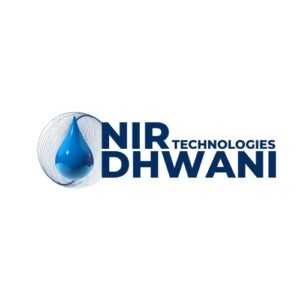Underwater Domain Awareness (UDA) Framework for
Effective Blue Frontiers in the Indo-Pacific Strategic Space

About Event
The Indian Ocean Region (IOR) and the South China Sea (SCS) have attained
significant strategic relevance in the 21st century for multiple reasons than one. More
and more global powers want to maintain their strategic presence in the region and
claim their stake in the global power play. The Indo-Pacific Strategic Space has
multiple aspects to it, including political, socio-economic and military. Extra-regional
powers are increasingly deploying their maritime forces and research vessels in the
region to ensure enhanced Maritime Domain Awareness (MDA). More nuanced
collaboration is the need of the hour and suitable frameworks are required. Europe
and some of the developed nations in the west could collaborate with India and build
partnerships.
The traditional MDA got significant push, post the 9/11 incident and the American
establishment made it a high priority strategic objective. Massive maritime
infrastructure and capacity building efforts took shape within the US and through their
allies to ensure effective MDA. In India, post the 26/11 incident, similar efforts were
initiated and the MDA infrastructure got prioritized in the IOR. However, in both the
cases, being an event driven initiative, it remained a security centric formulation with
minimal penetration with the other stakeholders. The MDA that we see today is largely
limited to the sea surface and the underwater component is still a work in progress,
even in the US led effort. The Underwater Domain Awareness (UDA), should be
considered as a mere extension of the MDA. The knowhow required is completely
different and specific domain knowledge is required to drive a nuanced awareness
initiative.
The UDA in the tropical littoral waters of the Indo-Pacific Strategic Space has some
unique challenges and opportunities. The sub-optimal sonar performance is a major
impediment to any UDA initiative. The socio-economic status of the nations in the
region is another major road block for maritime governance and also prioritizing S&T
for enhancing sonar performance with indigenous efforts is a cause of concern. The
extra-regional powers continue to push their hardware with least performance in the
tropical littoral waters. “Digital Oceans” today can have a far greater relevance
particularly in the tropical littoral waters. The UDA initiative will require complete sociopolitical and geo-strategic synergy to manage the challenges & opportunities.
The UDA framework proposed by the Maritime Research Centre (MRC), Pune tries to
encourage pooling of resources and synergizing of efforts across the four
stakeholders, namely the maritime security, blue economy, environment & disaster
management and the science & technology providers. The framework can minimize
the ongoing fragmented approach across stakeholders within the nations and also
among the nations in the region. Acoustic capacity and capability building becomes
the most critical component of effective UDA. Geo-economics will play a greater role
given the level of globalization that is required to drive the safe, secure, sustainable
growth model and effectively manage the challenges and opportunities of strategic
security and blue economy in the Indo-Pacific Strategic Space.
The Maritime Research Center (MRC), Pune is a not-for-profit, Section 8 company registered with the Registrar of Companies (RoC), as Foundation for Underwater Domain Awareness.
Contact Information
Address: Maritime Research Center, Koregaon Bhima, Pune, Maharashtra – 412216
Email: director@maritimeresearchcenter.com
Social Connect
- Youtube
Map
UDA*
The conventional approach of each of the stakeholders pursuing their own UDA* efforts has serious limitations given the highly resource intensive field experimental research initiative required for a long period. Click here for more


